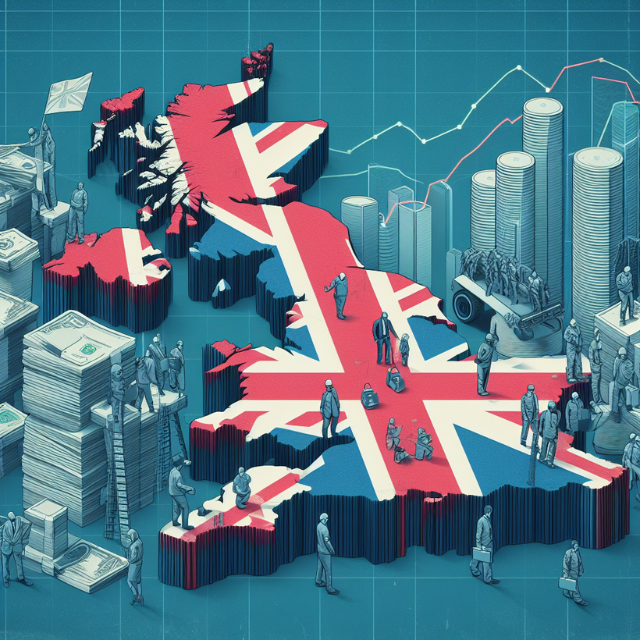.jpeg)
Autumn Statement 2023: The plan is working (apparently)
by Ed Reid
Jeremy Hunt opened the Autumn Statement in a jovial mood. “It’s my wife’s birthday today,” he cheerfully claimed.
 (JEREMY HUNT WITH HIS WIFE LUCIA, CREDIT: JEFF GILBERT PHOTOGRAPHY)
(JEREMY HUNT WITH HIS WIFE LUCIA, CREDIT: JEFF GILBERT PHOTOGRAPHY)
And his smile didn’t end there…
The Chancellor – in what could be his last economic announcement before a general election – informed us that “our plan for the British Economy is working”.
After a tumultuous 18 months, that is finally good news for the country.
The Office of Budget Responsibility (OBR) expect the economy to grow by 0.6% this year, 0.7% next year, and then rise to 1.4% in 2025 thanks to Mr Hunt’s measures.
Not only that but inflation is expected to fall to 2.8% by the end of 2024, again, good news for consumers.
Although this all came as quite a surprise.
You only have to cast your mind back one year to Liz Truss’ rule to remember how different things were. Rapid inflation had just begun. The national debt was growing at an exponential rate. And there was no confidence in the economy or the government.
It’s incredible what 12 short months can do. It is concerning, however, that the OBR have added: “Markets now expect interest rates to remain higher for longer to bring inflation under control”. This is a worry for everyone as more and more people move into new mortgage deals over the coming year.
But is it enough to regain confidence within the electorate that the Conservatives can look after the economy? I’m sure we’ll find out in the next by-election…
Let’s get to what the Chancellor is introducing and how it impacts me, you and our businesses.
Tax & Business

The thing we all have to live with.
Nothing is certain except death and taxes – as true now as it was in 1789 when Benjamin Franklin first coined the term. Let’s begin with the good news: Mr Hunt is easing our tax burden. Slightly. Hurrah!
The main rate of 12% for employee National Insurance is dropping to 10% on January 6th, saving the average earner £450 per year. This is quite timely, particularly if energy bills match last year’s figures without the government subsidy or your mortgage goes up.
A measure like this should encourage consumers to spend more and, thus, increase the multiplier.
Alongside the decrease in inflation, hopefully, we should start seeing growth from people splashing the cash again, but it’s hard to know if consumers have regained pre-pandemic confidence.
For businesses, “full capital expensing” has been made permanent, so we can continue to offset investments in IT equipment, etc., against tax. The small business multiplier has been frozen for another year, and the 75% business rates discount has been extended for those in retail, hospitality and leisure.
For the self-employed, Mr Hunt has abolished the Class 2 National Insurance, and Class 4 has been cut by 1%. The Chancellor estimates this is worth £192 a year from Class 2, plus £350 a year from Class 4.
Making a generous saving for the average self-employed business owner of £542 a year. Or £45 a month.
I don’t know about you, but £45 extra a month in the bank account isn’t enough to make me feel comfortable. And I imagine for most business owners, it won’t change their day-to-day activities either.
The Chancellor told us that it currently takes too long to approve infrastructure projects and business planning applications. So, to speed things up, the system is being reformed. If the local authority does not complete it promptly, this should result in businesses being refunded automatically, with the application processed for free.
Wages

Mr Hunt described his measures on wages as “the biggest welfare reforms in a decade.” Alongside a radical change to how people can claim benefits as part of his “back to work plan”, the national living wage is increasing to £11.44 from April 2024, a 12% increase on the current figure.
On the one hand, this is good for those with the lowest wages. But the message from the Chancellor is clear. Spend. Spend. Spend.
If it goes wrong for the Chancellor, he may drive an increase in inflation. If it goes well? We will continue to see slow growth. Emphasis on the word slow. The end game for Hunt & Sunak is to ensure that the next election doesn’t go as badly as predicted…
I feel these measures are generally a positive move forward, with increased confidence that the economy is back on track. But are the incentives enough to get people spending in continuing troubled times?
I’m not sure.
The tax burden on all of us remains incredibly high. The long road to recovery for the economy has only just begun, and, in truth, the end feels a long way off.
Related articles

Kindness in Leadership: The Competitive Advantage Most Businesses Miss
Discover why kindness in leadership drives performance, trust and culture. TABcast insights on psychological safety, coaching and values-led growth.

How Strategic Alignment Workshops Drive Real Execution
Many strategy workshops create alignment in the room — but little action after. Learn how structured strategic alignment drives execution.

Why Accountability Breaks Down as Businesses Grow (And How to Fix It)
As businesses grow, accountability often slips. Learn why it happens and how leaders restore clarity, ownership, and execution.


